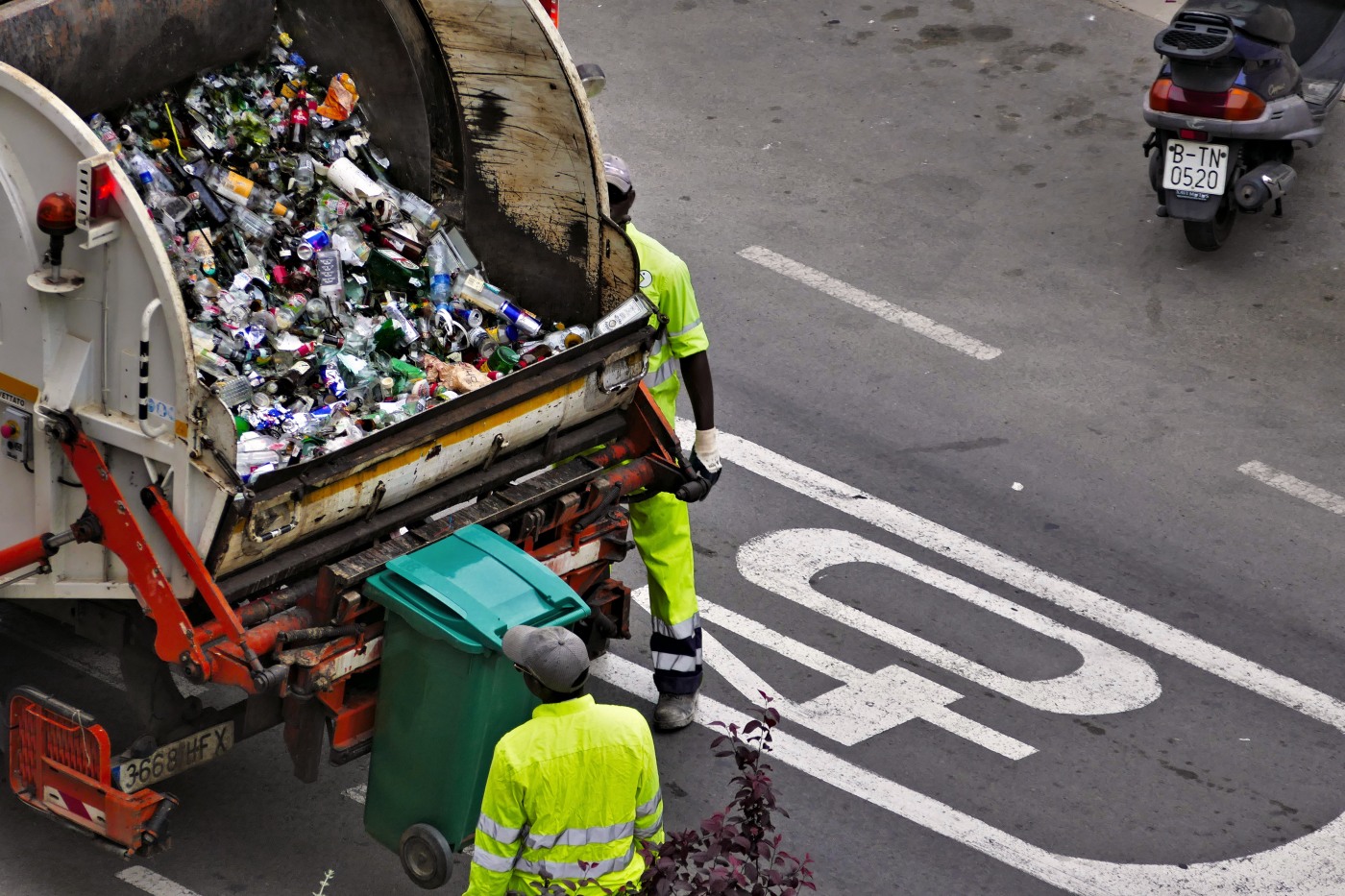Where Does Your Waste Go?
After you properly sort your material into the on-campus recycling, landfill, compost, and donation bins, what happens to it?
Where Does Your Waste Go?
After you properly sort your material into the on-campus recycling, landfill, compost, and donation bins, what happens to it?
What Happens To Your Recyclables?
After you put your recyclables in the recycling bins at Brown, our waste hauler picks up and transports the material to Rhode Island Resource Recovery’s Material Recycling Facility (MRF) in Johnston, RI. The MRF uses a combination of mechanics, optics, and yes, people, to sort mixed recyclables into distinct products. The products are then sold or sent to different manufacturers across the United States and the world to create new products.
What Happens To Your Compost?
Compost from the Brown campus is collected by composting partners the ReMix Organics Company and Recycleworks.
The ReMix Organics Company is a Rhode Island-based, organic waste hauling business. We work with businesses that produce food waste, ranging from restaurants and universities to large-scale food processing facilities. We supply organic waste to regional farms to produce high-quality compost and anaerobic digesters to produce renewable energy. Regional farms we work with include Earth Care Farm in Charlestown, RI and Hidden Acres Farm in Medway, MA.
Recycleworks is our second compost hauler. The company picks up material from Facilities Management, Hillel, Swearer Center, Warren Alpert Medical School, and West House.
Recycleworks follows these steps to process our organic material:
- Unwanted food waste, plate scrapings, and other organics are collected and aggregated.
- The collected organics are sent through depackaging equipment to remove inorganic compounds and create REOS – Recycleworks Engineered Organic Slurry.
- Inorganic compounds – packaging – is separated from the organics and sent to waste-to-energy plants.
- REOS is sent to either anaerobic digestion – a process by which unwanted food is turned into renewable energy. Every ton of unwanted food is converted into enough electricity to power 25 homes.
- The entire process is zero waste – the by-product of anaerobic digestion is used to generate a high value compost.
What Happens To Your Trash?
 After you throw your trash in the waste bin, Brown’s custodial staff empties your bin into outdoor dumpsters and containers. Our waste hauler then collects all trash from campus and delivers it to RI’s central landfill in Johnston, RI.
After you throw your trash in the waste bin, Brown’s custodial staff empties your bin into outdoor dumpsters and containers. Our waste hauler then collects all trash from campus and delivers it to RI’s central landfill in Johnston, RI.
As you can see on this virtual tour, current trends predict the landfill reaching capacity by 2034, thus we need your help to divert materials away from the landfill. Currently, about 3,800 tons of trash are buried in the landfill each day!
What Happens To Your Goodwill Bin Donations?
Donations are collected by Goodwill Industries of Southern New England. Donations are diverted to people in need and any profit goes directly to supporting Goodwill’s mission of providing job training to community members.
What Happens To Your Clean Break Donations?
With a goal of diverting as much waste as possible from the landfill and into the hands and paws of those in need, the Office of Sustainability collaborates with a variety of community organizations during the end of year move-out program.
Learn more about the Clean Break program and how to volunteer
Here are a few of the organizations that your Clean Break donations support:
The Million Book Project receives books from the Clean Break program. The Project's mission is to be a provider of books and to repurpose as many as possible in order to keep them out of landfills and into the hands of those that enjoy reading.
The Providence Animal Rescue League (PARL) receives bedding, towels, open detergent, shampoo, and cleaning supplies that are used to take care of the shelter animals. PARLS's mission is to provide appropriate shelter and care for animals in need, seeking permanent homes for adoptable animals, reducing pet overpopulation through affordable spay/neuter services, and providing humane education programming.
Children's Friend receives a variety of donations from the Clean Break program. Its mission is to be an innovative leader in improving the well-being and healthy development of Rhode Island’s most vulnerable young children.
The Clean Break program donates winter coats and cold-weather accessories to Brown's Undocumented, First Generation, and Low-Income Center. The mission of the center is to contribute to the endurance of U-FLi students by providing them with a dedicated space and programming that values their lived experiences as they navigate an elite, historically white institution and acknowledges the impact of the current socio-political climate on their academic well-being.